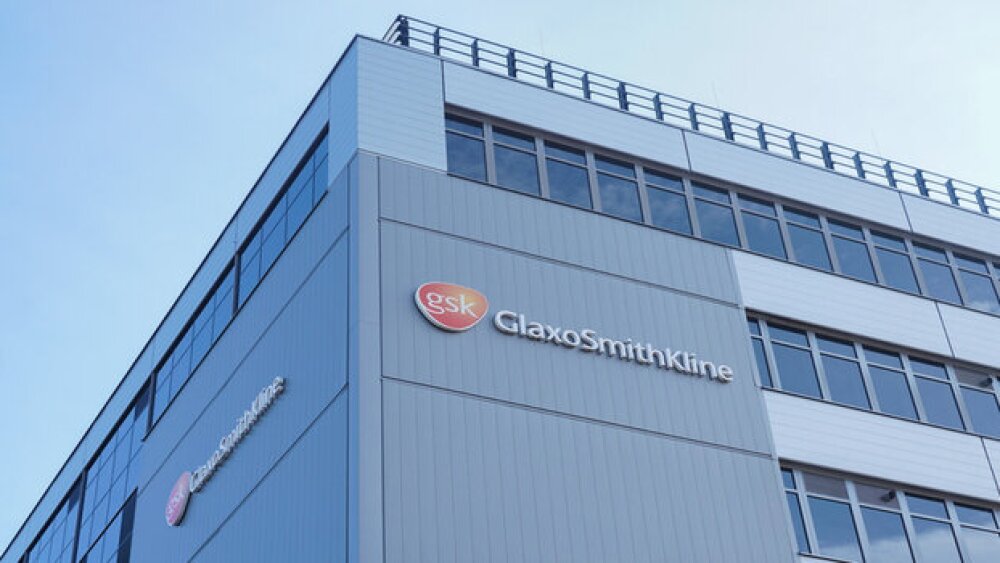GSK terminated their collaboration with Vir to research, develop and commercialize the biotech’s monoclonal antibodies for the prevention, treatment, or prophylaxis of the influenza under a 2021 agreement.
Pictured: GSK building in Dresden, Germany/iStock, 13threephotography
Vir Biotechnology and GSK are ending a part of their collaborative effort to develop a flu treatment, the San Francisco-based biotech announced in its earnings results reported Thursday.
According to Vir’s announcement, GSK terminated the collaboration to research, develop and commercialize the biotech’s monoclonal antibodies for the prevention, treatment, or prophylaxis of the influenza virus. The agreement was made in May 2021, but with the termination Vir will hold on to the sole rights to advance investigational therapies for flu on its own or with other partners.
On Thursday’s investor call, Vir CEO Marianne De Backer said that the biotech would retain the “sole rights” to its flu therapies and will look to go after “external partnerships” for the treatment.
The collaboration on the flu treatment hit a significant bump in the road in July 2023 when the topline data from a Phase II study showed the flu shot, known as VIR-2482, had not reached the primary and secondary endpoints. Patients given the higher dose of 1,200mg saw a 16% drop in influenza A-like illness compared with a placebo, which was not statistically significant.
Vir CMO Phil Pang said at the time that the results were “disappointing” but that the company would need to conduct more analysis to understand the results. The complete data analysis will be in a scientific publication in the second quarter.
GSK and Vir are still collaborating with both companies “actively pursuing external partnership opportunities” for antibody-drug conjugates and “next-generation” influenza A and B antibodies.
The companies previously inked an agreement to research and develop therapies for treating coronaviruses, but eventually stepped back from the deal last year. In 2021, GSK boosted its equity investment by $120 million and made a $225 million upfront payment to collaborate on research and development for influenza.
The VIR-2482 candidate is a monoclonal antibody, which completed Phase I when the GSK partnership began.
Vir is not the only biotech currently targeting influenza. Moderna has several vaccine candidates and its mRNA-1010 vaccine candidate last year showed some effect in influenza A and less so in influenza B. Pfizer is in the midst of a Phase III influenza vaccine trial, which was started in 2022.
Tyler Patchen is a staff writer at BioSpace. You can reach him at tyler.patchen@biospace.com. Follow him on LinkedIn.






